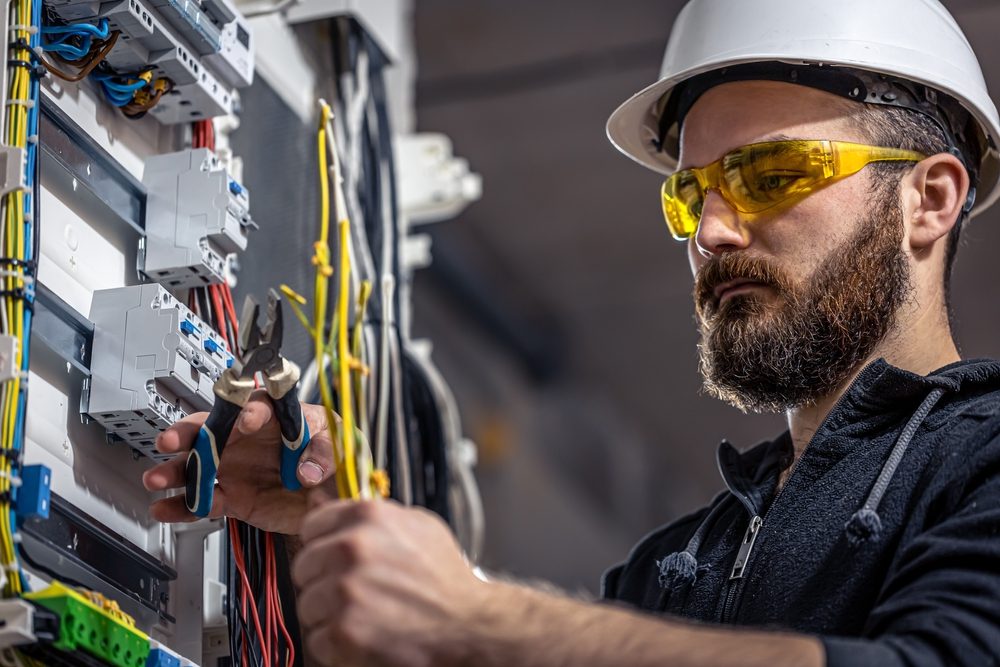Electrician vs. Approved Electrician
Introduction
When it comes to electrical work, choosing the right professional can make all the difference. Whether you’re dealing with a minor repair or a major installation, understanding who to hire is crucial. In this article, we will explore the distinctions between a general electrician and an approved electrician. You'll gain insights into their qualifications, responsibilities, and when to call "electricians near me."
Electrician vs. Approved Electrician: Key Differences You Need to Know
The terms "electrician" and "approved electrician" often confuse homeowners. While both professionals work with electrical systems, they differ in training, certification, and the scope of work they can perform.
What Is an Electrician?
An electrician is someone trained to work on electrical wiring for homes, businesses, and various installations. They can handle tasks such as:

- Installing lighting fixtures
- Running wiring through walls
- Repairing electrical systems
Electricians may not always have formal qualifications or licenses but often learn through apprenticeships or on-the-job training.
What Is an Approved Electrician?
An approved electrician has completed additional training and gained certifications that prove they meet specific industry standards. They are registered with regulatory bodies and can undertake more complex tasks like:
- Inspecting electrical systems
- Obtaining permits for major projects
- Ensuring compliance with safety regulations
Qualifications of an Electrician vs. Approved Electrician
General Qualifications for Electricians
Most electricians complete an apprenticeship program that combines classroom instruction with hands-on experience. Common requirements include:

- High school diploma or equivalent
- Completion of an apprenticeship
- Basic knowledge of electrical codes
Additional Qualifications for Approved Electricians
Approved electricians have taken extra steps to enhance their credentials:
- Certification from a recognized body (e.g., National Electrical Contractors Association)
- Continuing education courses in electrical safety
- Registration with local or national regulatory authorities
Scope of Work: What Can Each Professional Do?
Typical Tasks for General Electricians
While general electricians handle many tasks competently, they might be limited in undertaking larger projects.

Typical Tasks for Approved Electricians
Approved electricians typically manage bigger projects where adherence to regulations is essential.
Importance of Hiring Qualified Professionals
Hiring unlicensed workers can lead to multiple issues including subpar workmanship and safety hazards. When searching for "electricians near me," ensure you verify their qualifications.
How to Find Electricians Near Me?
Here’s how you can locate reputable electricians in your area:
Cost Differences Between Electricians and Approved Electricians
Typical Rates for General Electricians
General electricians usually charge lower rates due to their lack of advanced certification:
- $50 - $75 per hour
- Flat fees for minor repairs
Typical Rates for Approved Electricians
Approved electricians tend to charge higher rates because of their expertise:
- $75 - $100 per hour
- Additional fees for inspections and permits may apply
Safety Considerations When Hiring Electrical Professionals
Electrical work poses inherent risks if not handled properly; thus hiring qualified individuals makes a difference in safety outcomes:
Common Misconceptions About Electricians and Approved Electricians
1. All electricians are equally qualified.
Not true! Approval signifies additional training and compliance with specific standards.
2. It’s okay to hire unlicensed workers for minor jobs.
This could lead to legal trouble if something goes wrong during the project.
FAQs About Choosing the Right Electrical Professional
1. What should I look for when hiring an electrician?
Look for qualifications, insurance coverage, reviews from previous customers, and licensing status.
2. How do I know if I need an approved electrician?
If your project involves significant changes or requires inspections and permits, go for an approved electrician.
3. Is it necessary to get multiple quotes?
Yes! Getting multiple quotes allows you to compare prices and services offered by different professionals in Charlotte, NC.
4. Can I do my own electrical work?
While some minor repairs might seem easy; it’s best left to professionals unless you're trained in electrical work yourself.
5. How long does it take to become an approved electrician?
Typically it takes several years of education plus additional time spent obtaining certifications depending on local regulations.
6. What happens if I hire someone without a license?
You risk poor workmanship which could lead electricians near me not only to costly repairs but also endanger your home’s safety.
Conclusion
Understanding the differences between a general electrician and an approved electrician is key when you need electrical work done in Charlotte, NC or nearby areas! Always opt for certified professionals who meet safety standards – this ensures that your home remains safe while getting the quality service you deserve! So next time you're searching online for “electricians near me,” make sure you consider these factors carefully before making your choice!
By keeping these distinctions clear in mind, you’ll be better equipped when faced with the decision of whom to hire – ensuring both your peace of mind and your home's safety!